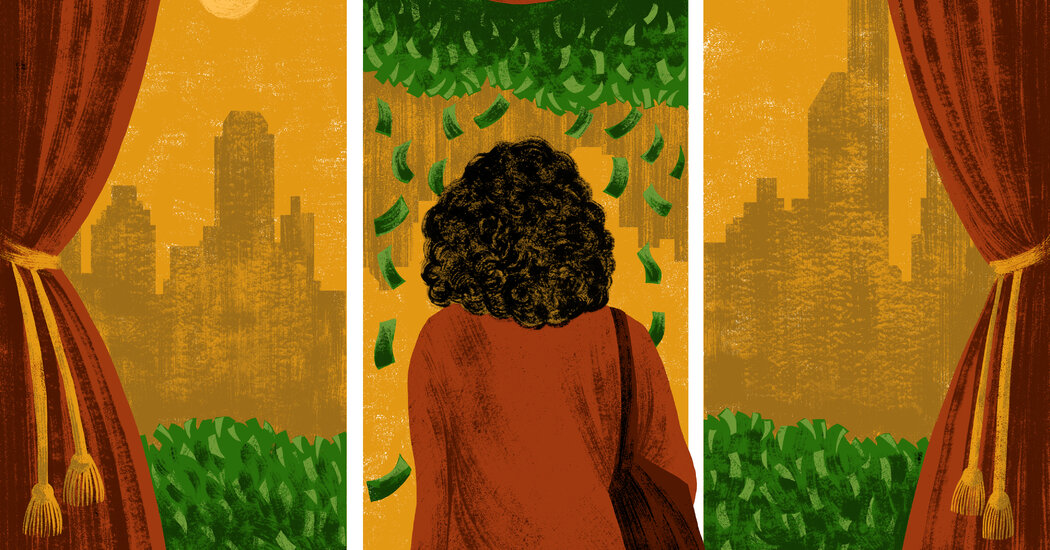
In Rumaan Alam’s new novel, “Entitlement,” giving away a fortune isn’t as easy as it sounds.
ENTITLEMENT, by Rumaan Alam
Rumaan Alam is a rarity: a male novelist who specializes in female viewpoints. The viewpoints in question are themselves specialized. They focus on the bourgeois adventures of New York City up-and-comers, adventures in which universal quests — for family, for a home, for material security, for social standing — are intensified and glamorized by the dramatic particulars of life in the big city. The intensity and the glamour come down, in the end, to money. To survive and thrive in New York, you usually need a lot of it.
This reality is not lost on Brooke Orr, the protagonist of “Entitlement.” The 33-year-old Black adopted daughter of a white single mother, Brooke is the beneficiary of a privileged, hyper-liberal background involving a Vassar education, a lawyer parent who runs an organization for reproductive justice, and a supportive, vividly multiracial entourage of prosperous college buddies and well-connected solicitous family friends. The diversity and social capital of this cast of characters are not gratuitous. Their significance, we come to realize, is that even a well-off, well-meaning and well-dressed upbringing are no defense against Mammon’s enchanting, debasing influence.
Enter Asher Jaffee, an octogenarian self-made billionaire whose almost inconceivable net worth has been amassed through successive careers in “paper. Then catalogs. Then malls. Then real estate.” Jaffee and his wife have set up an altruistic entity, the Asher and Carol Jaffee Foundation, whose purpose is to give away their money.
This turns out not to be a straightforward enterprise, in part because the Jaffee fortune keeps growing, of its own accord, like giant kelp — “If we’re making more than we’re giving away, we’re failing,” a foundation employee remarks. And the usual challenges of doing effective philanthropy are in this case exacerbated by the fact that the philanthropist, Jaffee, is vague and whimsical about his charitable objectives. When a subordinate suggests to him that “we must deal with the world as it is,” the boss responds: “We’re changing that world.”
Brooke is hired to help. Even though she is an inexperienced and inept junior employee (her title is program coordinator), the foundation is a tiny organization, and soon enough she catches Jaffee’s eye: “This woman, Brooke, Black, gorgeous, serious, passionate, was the sort of woman he wanted at the foundation, the sort of woman he wanted working in his name. It was electric, almost chemical.” Jaffee turns Brooke into his sidekick and companion. They have very fancy fun together. They secretly buy a huge Helen Frankenthaler painting as a birthday present for Mrs. Jaffee, they go to Lincoln Center to hear a performance of Mozart’s Masonic funeral music, they drink whiskey and quote Shelley’s “Ozymandias” as they contemplate Central Park from the old tycoon’s enormous, glass-walled Fifth Avenue apartment. “This was Asher Jaffee’s vantage on reality,” Alam writes. “It was out there, somewhere, distant, something to look down on with amusement.”




